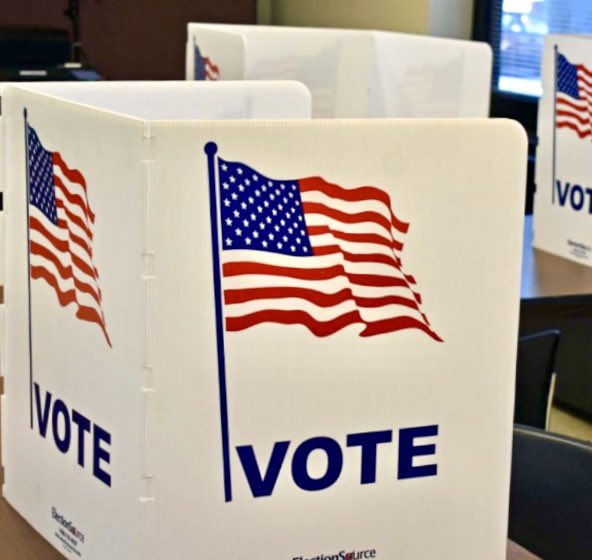Most countries have an official language, but just like a lot of other areas, the United States of America is one of the exceptions to the rule. Whether you like it or not, English is not the official language of the United States. Despite English being the most widely spoken language in the country, it is not officially recognized as the national language. According to the U.S. Census Bureau, as of 2021, 245 million Americans are native English speakers. However, the linguistic landscape of the United States is far more diverse than most Americans would initially assume. Most Americans who speak a language different from English at home, are bilingual with English, but for Americans considered limited English proficient (LEP) by the American Translators’s Association, translation should become a matter of not just accessibility, but public policy.
A 2021 Rasmussen poll revealed that 73% of American adults believed English should be the official language of the United States, while only 18% disagreed. Despite the sentiment, the reality is that people in the U.S. communicate in more than 350 languages. This linguistic diversity is evident, not just in family structures but in the hundreds of linguistic enclave communities that exist throughout the country, such as the Little Italys, Chinatowns, and even the Amish with their unique dialect of Pennsylvania Dutch.
English is still the primary language for most business transactions, used for most original government document drafts and is used in the majority of American media. And as we head into the election season this November 2024, with the anticipated elderly contest between President Joe Biden and former President Donald Trump, the languages in which people’’s ballots are printed in, and effective translation of names and policy becomes essential for democratic accessibility.
For example, close to my home in San Francisco, where more than one-a fifth of residents are of Chinese descent, political candidates have long taken a second name in Chinese characters to appeal to this significant demographic. Any serious candidate knows to order campaign materials in both English and Chinese. Vice President Kamala Harris, for example, used the traditional name 賀錦麗 (Ho Gam-lai), which means “”Congratulate Brocade Beautiful,”” while campaigning for the San Francisco district attorney in 2003. This name choice was even the target of jokes in Taiwan, as in Hokkien, “”hó-tsíng-lí,”” which translates to “”She’’s come to clean up.””
However, not all translated Chinese names chosen by the candidates are without controversy. Michael Isaku Begert, who is running to keep his local judgeship, cannot use the name he came up with, “米高義,” which means in part “”high”” and “”justice,”” a name that suggests he was destined to sit on the bench. This raises the question: Are these names ethical? While names like Kamala Harris’’s, which are not directly related to the role of the job, may be acceptable, names that imply a candidate’’s suitability for a specific position could easily be seen as misleading or manipulative.
Since 1999, San Francisco has mandated that candidates’’ names appear in both English and Chinese on ballots. However, in adherence to a 2019 state law, the city now requires transliteration for new candidates while allowing those who can prove they have used a Chinese name for at least two years to continue using it. This change in policy was backed by the California State Treasurer, Fiona Ma, after inconsistent policies had resulted in her Chinese name being changed without her knowledge.
The practice of political candidates claiming names given to them by community leaders raises ethical considerations. While using a name given by a respected community figure could be seen as a sign of authenticity and respect, there is also a risk of candidates exploiting this practice for political gain without having a true connection to the community. Candidates should be transparent about their connections to the communities, especially if they seek to represent and use names that accurately reflect their identities and values.
As we approach the November election season, it is crucial to consider the ethics of multilingual campaigning and candidate naming practices. By examining these issues, we can work towards a more inclusive and equitable democracy that respects and represents our nation’’s linguistic and cultural diversity. Striking a balance between authenticity and integrity in multicultural campaigning is essential to foster meaningful engagement and representation of diverse communities while avoiding manipulative or disrespectful practices. Clear and consistent language policies in elections, combined with careful consideration of the ethical implications of candidate naming, are necessary steps in navigating the innate challenges and opportunities of a multicultural and multilingual America.
Andrew McDonald, FCRH’26, is a history and political science double major from Sacramento, Calif.










































































































































































































Jamie Hartz • Mar 9, 2024 at 10:00 am
Andrew, thank you for mentioning the American Translators Association in your latest publication! We are proud to be the largest association of translators and interpreters in the United States, and our membership spans over 100 countries and 90 languages. ATA has a Speaker Bureau with trained spokespersons and we would be happy to put you in touch with someone who can speak to topics related to translation and interpreting for any upcoming articles you may have on this topic. Just contact us on the ATA website to chat further.
Best regards,
Jamie Hartz
Chair, ATA Public Relations Committee